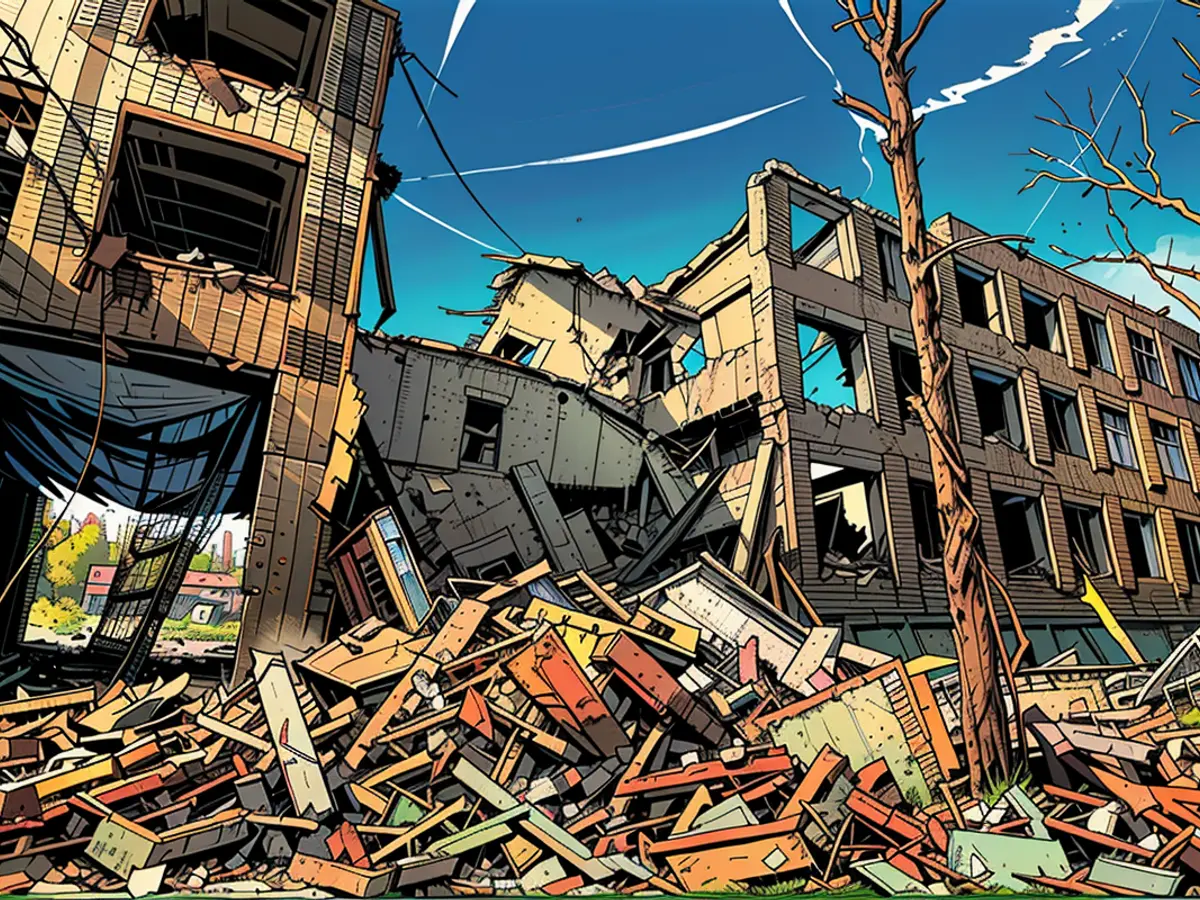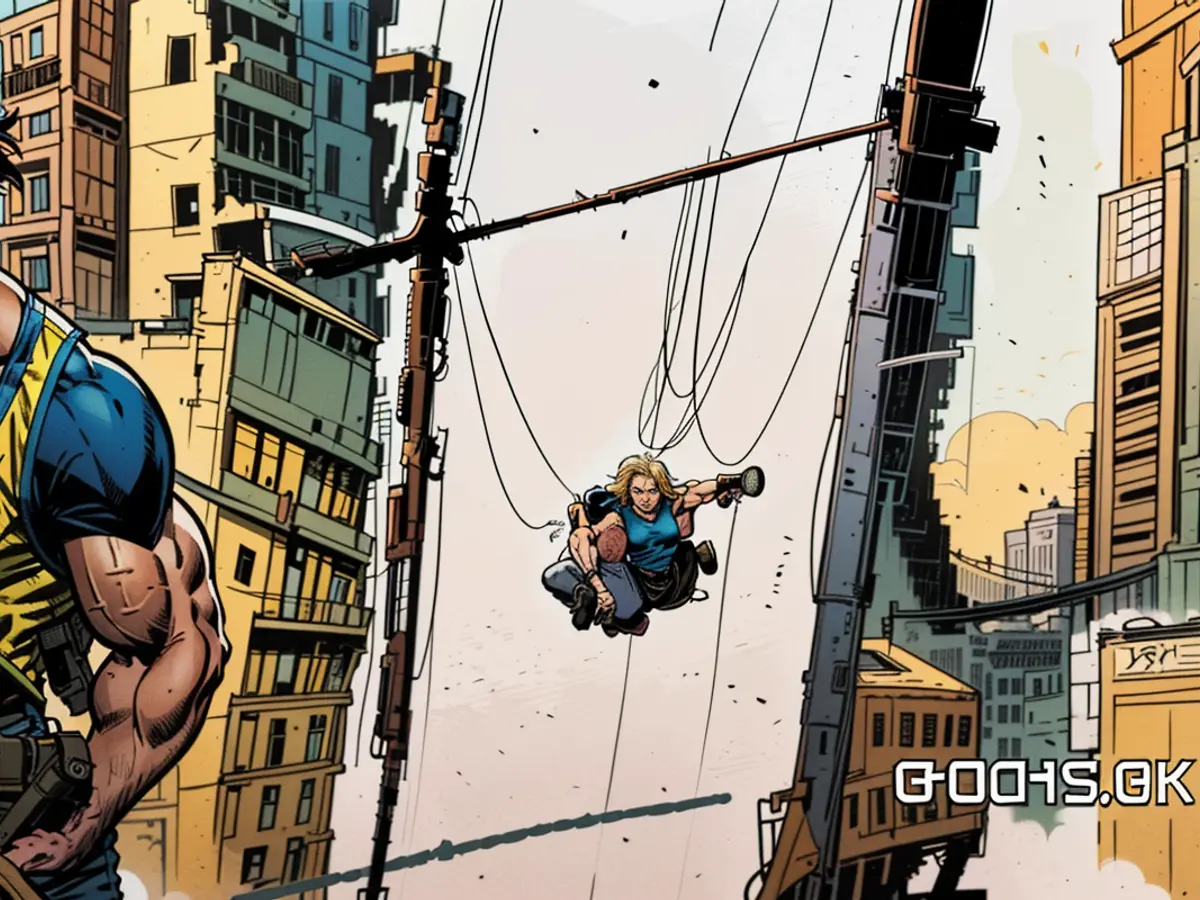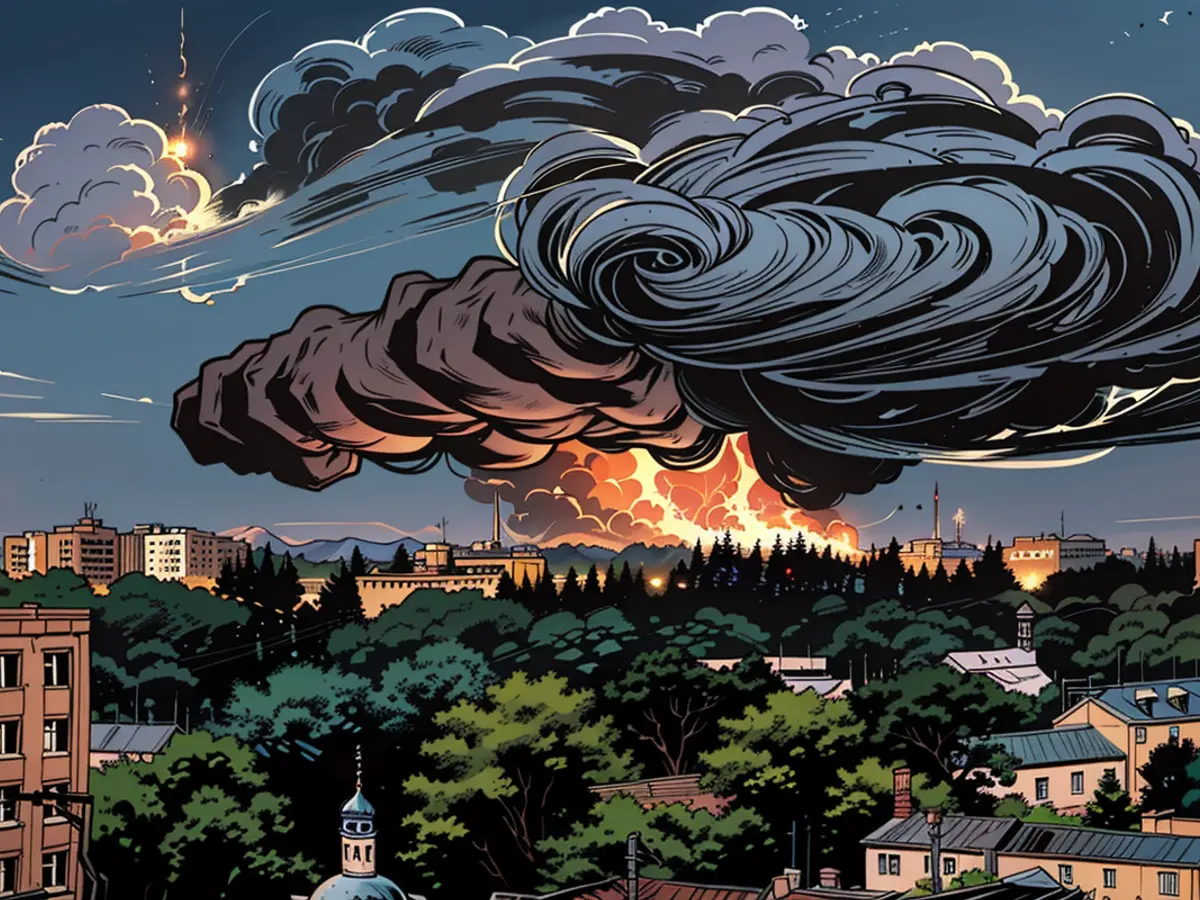In the southern region of Ukraine, civilians allegedly report targeted assaults by Russian drones.
Drone assaults on ordinary residents have significantly increased in this area since autumn began, with locals reporting Russian drone assails on pedestrians, vehicles, buses, and even an ambulance, as per local authorities.
The injury statistics suggest that drones are targeting civilians, with some instances involving the elderly and children. For instance, a 76-year-old woman suffered severe injuries when her car was hit in a urban residential district in Kherson's heart, as per the local military administration. In another drone attack in October, a 69-year-old woman was killed when explosives dropped from a drone hit a public bus in Antonivka, a suburb of the city.
At least 14 people have been killed by drones since September, with an additional 222 adults and three children injured, according to authorities.
"They don't care who they hit. Grandma, grandpa, it doesn't matter. Man, woman, it doesn't matter," said Tetyana Yakovleva, a 47-year-old factory worker and humanitarian volunteer from Antonivka's suburb. Locals have dubbed the street leading there "the road of death," due to its proximity to nearby Russian forces and its prior status as a hotspot for conflict.
Kherson is the largest Ukrainian city on the front line and was the first major city to come under Russian occupation, in early March 2022, before being freed eight months later. In June of the previous year, parts of the city were flooded when the Nova Kakhovka dam, 36 miles up the Dnipro river in Russian-controlled territory, was damaged. The threat of occupation continues to loom just across the river, where Russian military positions can be seen with the naked eye.
Yakovleva stayed in her village during the occupation and has been injured multiple times since the war began, including by shrapnel. Most recently, a drone targeted a shelter where she was volunteering, providing humanitarian aid to civilians.
"The drone hovered over us, hovered for a long time. And then it dropped a grenade next to the door," Yakovleva told CNN. "We were all in shock."
"It's really scary... We look at the sky before we go out. We make sure there's no buzzing," she added. "Bad weather now is our luck."
Two Ukrainian Armed Forces sources operating in the Kherson region couldn't provide CNN with a military explanation for the Russian drone attacks. "It's just to scare the locals," one of the military sources said.
Russia attacked the area with more than 2,700 drones in September and had already launched 1,500 by October 17, according to the head of the Kherson region's military administration, Oleksandr Prokudin.
The frequency of the attacks and the drones' small size make them difficult for Ukrainian forces to counter. The drones also move at high speeds, making it almost impossible for civilians to escape if they are in the crosshairs.

"A lot of these drones operate on wavelengths and at altitudes below air defense systems. They're too small as well," said Kateryna Stepanenko, a Russia analyst at the Institute for the Study of War (ISW), a Washington, DC-based think tank. She noted that the "sheer number" of Russian drones – many of which are small, commercially available units that are easy to deploy – is putting a significant strain on Ukrainian detection systems.
ISW found a significant increase in drone strikes on the Kherson region around mid-July 2024. This coincides with when Ukrainian forces began to withdraw from positions on the Russian-occupied eastern side of the river, in the village of Krynky, in early July 2024.
Russian forces may have shifted from targeting Ukrainian forces in Krynky to targeting the broader western bank of the Dnipro River in Kherson, Stepanenko told CNN.
Analysts suggest that Russian troops are deploying large numbers of drones for several reasons – one of which is the desire to show they are maintaining activity to avoid being moved elsewhere.
"At least in part, there's this element of these forces trying to show that they're doing something, so that they're not relocated to a different front line, like the Pokrovsk direction," Stepanenko said. "It's also to experiment with the new drones they have."
Disturbingly, multiple Russian bloggers have boasted online about fatal drone strikes.
Several Russian military blogger accounts on Telegram posted about an unofficial "Red Zone" in Kherson at the beginning of September, declaring that "all critical infrastructure" and "any vehicular movement will be considered a legitimate target."
After that, there was an increase in videos posted on Telegram that appeared to show Ukrainian civilians being attacked or fleeing from drones, with Russian commentators mocking them.
One video filmed from overhead, geolocated by CNN, shows an explosive device being dropped on a Ukrainian woman riding a bicycle in Antonivka, with comments calling her derogatory names and claiming they would find her because she is the daughter of a Ukrainian soldier. It detonates very close to her but she continues to pedal.
Another aerial video posted online shows a man in civilian clothing trying to hide from a drone under a tree. CNN was unable to geolocate the video, but the Russian Telegram account that posted it blogs about the Kherson region specifically. The blogger claimed it shows a member of the Ukrainian Armed Forces and mocked the man for crawling on all fours.

ISW reported that unofficial Russian Telegram channels have claimed their forces are trying to destroy all vehicles so that Ukrainian forces can't move. "But if you look at the footage, it actually shows a lot of civilian vehicles" being hit, Stepanenko said.
Despite remaining silent on the subject of the "Red Zone" in Kherson, locals in the area have reportedly taken notice of the declaration and are concerned about becoming targets for Russian drone attacks.
"It's like we're in a crosshair"
Inflicting harm on civilian targets and non-combatants not actively participating in hostilities is deemed a violation of international law.
Russia has consistently faced allegations of deliberately targeting Ukrainian civilians, a claim made by Kyiv, its international allies, the International Criminal Court, and the United Nations. Despite the mounting evidence, Russia has consistently denied these allegations.
Residents of Kherson have shared their concerns about the lack of safety in their region, with no apparent sanctuaries from Russian attacks.
On a recent Monday, an ambulance in Kherson was struck by a Russian drone, leaving two paramedics injured. This incident marked the second drone attack on an ambulance in a matter of weeks, with the first happening roughly 15 miles south of the city in early October. As a result, a 49-year-old woman and the 60-year-old ambulance driver endured serious injuries, according to the local military administration.
"In the past few months, we've been unable to step outside our homes," Natalya, 46, a resident of Antonivka, shared. She spoke to CNN while recovering from the same strike that injured Tetyana Yakovleva at the humanitarian aid shelter.
"We survived the occupation here. We also survived the flood. But these drone attacks are nothing short of inhumane," Natalya expressed. "It's like we're in a crosshair."
Report by CNN's Katy Ling.

The increase in drone attacks in Kherson has affected people of all ages, as evidenced by an elderly woman who was severely injured when her car was hit in a residential district. This incident occurred in the heart of Kherson, as reported by the local military administration. Moreover, Europe and the world have been watching as these attacks on civilians, including children, continue to escalate in this troubled region.







